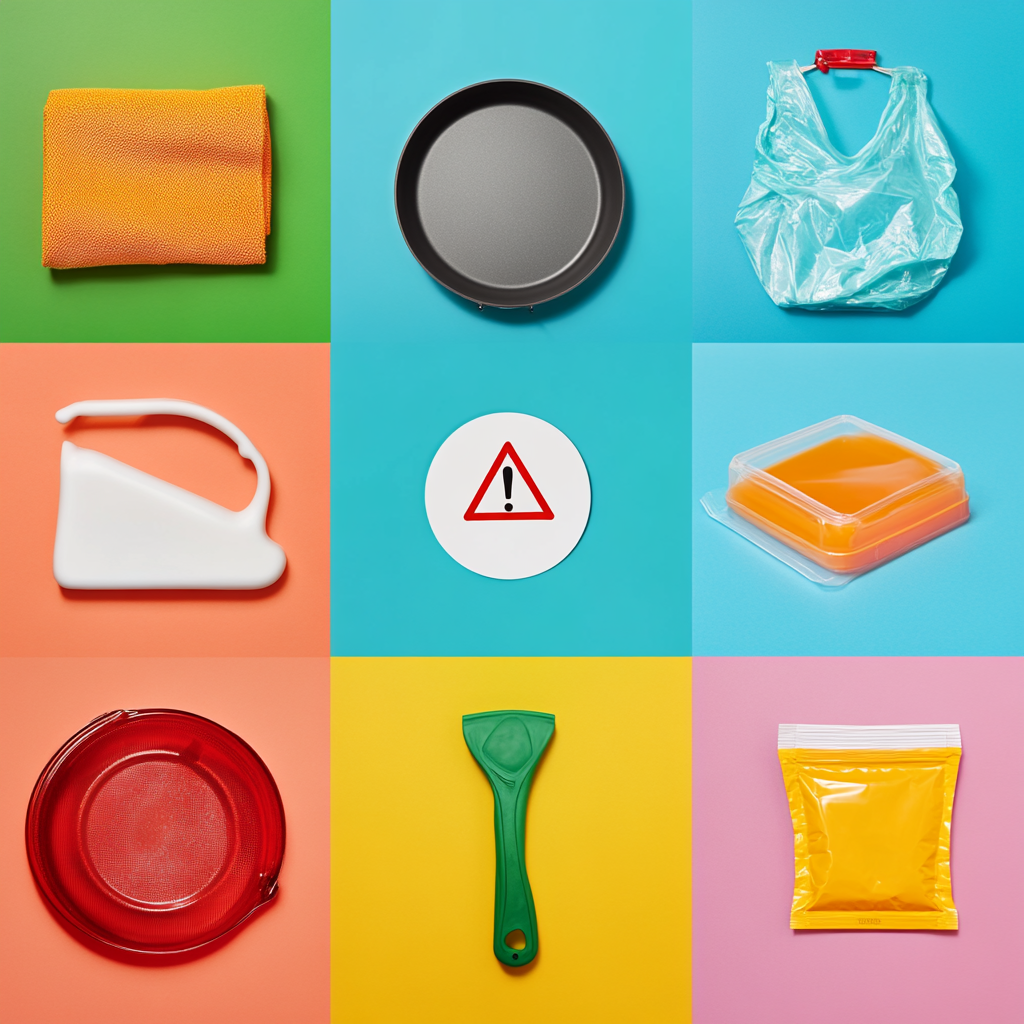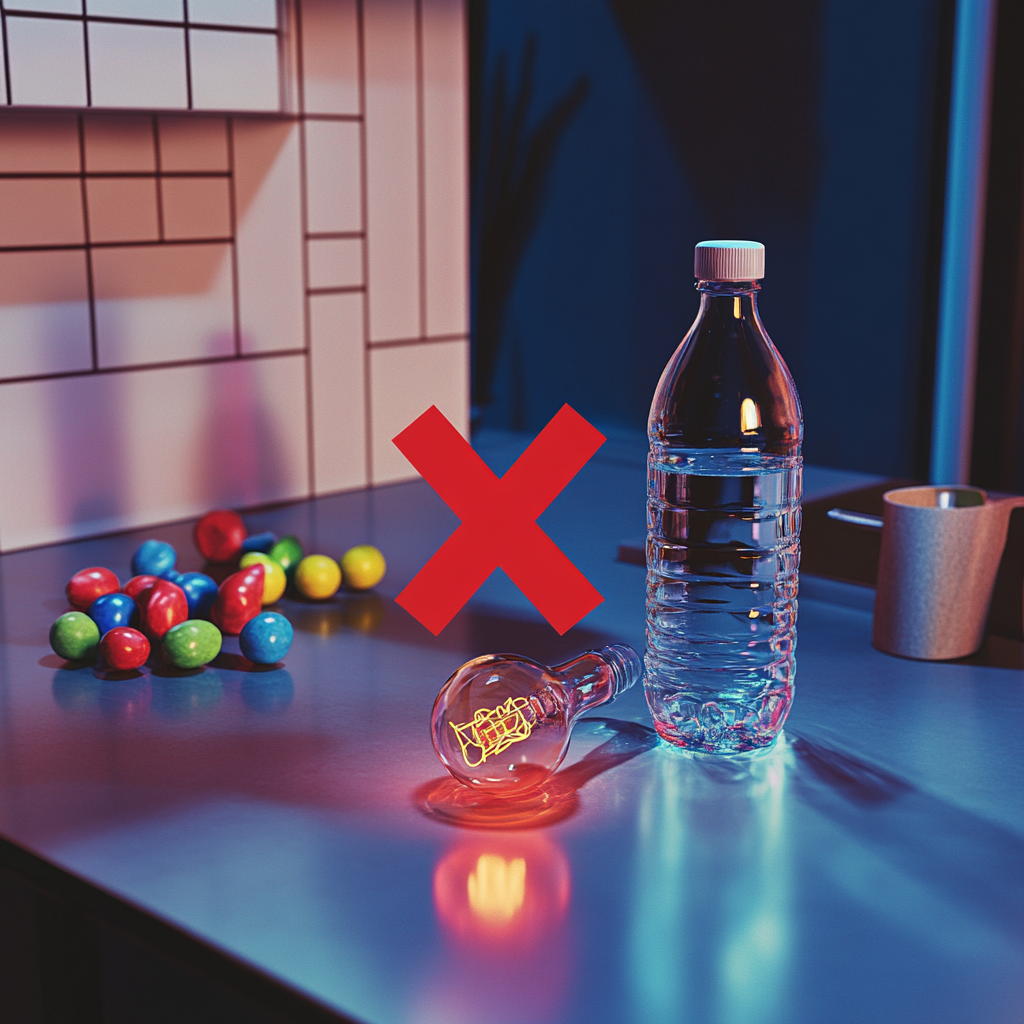In an ever-changing world, it’s not uncommon for products we use daily to come under scrutiny. As new research emerges and societal values shift, items once considered harmless may suddenly find themselves on the verge of being outlawed. Today, we’re diving into a list of 8 everyday products that could soon vanish from store shelves, leaving you scrambling for alternatives. Prepare to be surprised – some of these might be sitting in your kitchen or bathroom right now!
1. Incandescent Light Bulbs
Say goodbye to the warm glow of traditional light bulbs! Incandescent bulbs have been federally banned since August 1, 2023. These energy-guzzling illuminators are being phased out in favor of their more efficient LED counterparts. The shift towards LEDs isn’t just about saving energy – it’s also about safety and longevity. So, if you’re still hoarding a stash of incandescents, it might be time to let them go and embrace the future of lighting.
While this change might seem drastic, it’s been a long time coming. Retailers have been gradually phasing out incandescent bulbs for years, so many consumers have already made the switch without even realizing it. The new law simply puts the final nail in the coffin for these outdated light sources.
2. Colorful Candies and Snacks

Your favorite rainbow-hued treats might be in for a makeover. Several U.S. states are considering bans on popular food additives found in a wide range of snacks and beverages. California has already passed the so-called “Skittles Ban,” set to take effect in 2027. This law targets chemicals like Red Dye No. 3, titanium dioxide, and potassium bromate – ingredients commonly found in cereals, candies, and sports drinks.
But it’s not just California taking action. New York, Pennsylvania, Illinois, New Jersey, and Missouri are all considering similar bans. The goal isn’t to outright prohibit these beloved snacks, but rather to force companies to reformulate their recipes using safer alternatives. So, while your favorite treats might still be available, they could soon look and taste a bit different.
3. Certain Cheeses
Cheese lovers, brace yourselves. Some of the most beloved European cheeses are already banned in the United States, and more could follow suit. Unpasteurized milk cheeses like Époisses, Brie de Meaux, and Mont d’Or are currently prohibited due to FDA regulations. These restrictions stem from concerns about potentially harmful bacteria in raw milk.
While pasteurized versions of some of these cheeses are available, purists argue that the heat treatment process alters the flavor and texture. As food safety regulations continue to evolve, it’s possible that more varieties of artisanal and traditional cheeses could face restrictions or outright bans in the future.
4. PFAS-Containing Products

Per- and poly-fluoroalkyl substances, better known as PFAS, are a group of chemicals used in a wide range of products for their water-resistant and non-stick properties. Colorado has recently passed a law that will ban the sale of many items containing PFAS, and other states are likely to follow suit.
This ban could affect a surprising number of everyday products, including:
- Non-stick cookware
- Water-resistant clothing and shoes
- Stain-resistant carpets and upholstery
- Certain types of food packaging
- Some cosmetics and personal care products
As awareness grows about the potential health and environmental risks associated with PFAS, consumers may need to seek out alternative products that don’t rely on these “forever chemicals.”
5. Certain Cosmetics and Personal Care Products
Your beauty routine might be in for a shakeup. The United States is lagging behind more than 80 countries in regulating toxic chemicals in cosmetics. While the FDA has only banned or restricted 9 chemicals for safety reasons, other nations have taken action against over 1,600 potentially harmful ingredients.
However, change is on the horizon. States like California and Maryland have already banned 24 of the most concerning chemicals and contaminants in cosmetics, including:
- Formaldehyde
- Certain parabens
- Some PFAS compounds
As more states follow suit and pressure mounts for federal action, consumers may soon see a significant shift in the ingredients used in their favorite personal care products. It’s worth taking a closer look at your cosmetics labels – some of the items in your makeup bag or bathroom cabinet might be facing future bans.
6. Plastic Microbeads

While not a future ban, it’s worth noting that plastic microbeads have already been prohibited in the United States since 2015. These tiny plastic particles, once common in exfoliating scrubs and toothpastes, were found to be a significant source of water pollution. The ban on microbeads serves as a reminder that seemingly harmless product ingredients can have far-reaching environmental impacts.
As environmental concerns continue to shape policy, we may see similar bans on other types of microplastics or synthetic materials used in personal care products and cosmetics. Consumers are increasingly turning to natural alternatives, such as products containing biodegradable exfoliants like sugar or ground nut shells.
7. Gas-Powered Vehicles
While not an immediate ban, the days of the traditional gas-powered car are numbered in many parts of the world. Several countries and U.S. states have announced plans to phase out the sale of new gasoline and diesel vehicles in the coming decades. California, for instance, aims to ban the sale of new gas-powered cars by 2035.
This shift towards electric vehicles (EVs) is driven by concerns about climate change and air pollution. As battery technology improves and charging infrastructure expands, consumers can expect to see a dramatic transformation in the automotive landscape. If you’re in the market for a new car, it might be worth considering an electric or hybrid option – your next vehicle purchase could be among the last generation of gas-powered cars available in your area.
8. Single-Use Plastics
The war on single-use plastics is intensifying, with many countries and local jurisdictions implementing bans on items like plastic bags, straws, and utensils. While the United States doesn’t have a federal ban on single-use plastics, many states and cities have taken matters into their own hands.
As environmental concerns grow, it’s likely that we’ll see more comprehensive bans on single-use plastics in the coming years. This could affect a wide range of everyday items, including:
- Disposable coffee cups and lids
- Plastic food containers and packaging
- Bottled water and other beverages in plastic bottles
- Disposable razors
- Plastic cotton swabs
Consumers can stay ahead of the curve by seeking out reusable alternatives and supporting businesses that prioritize sustainable packaging options.

